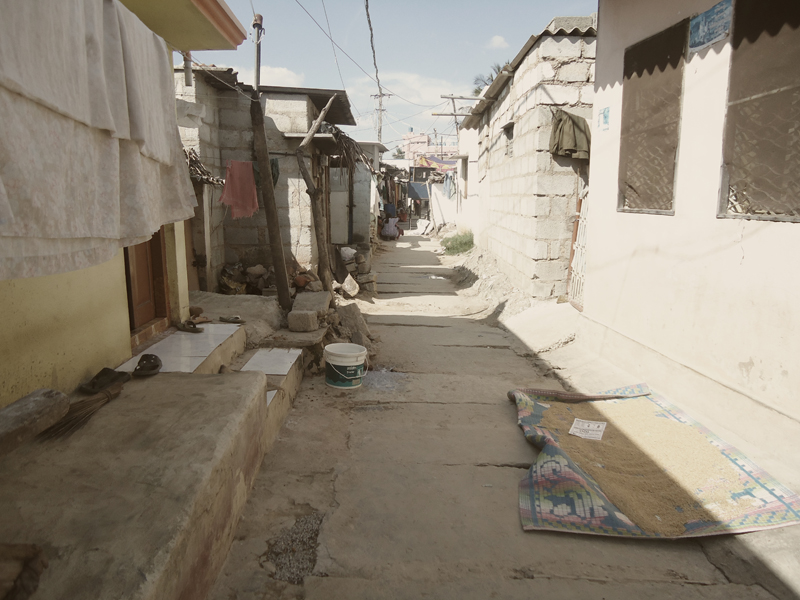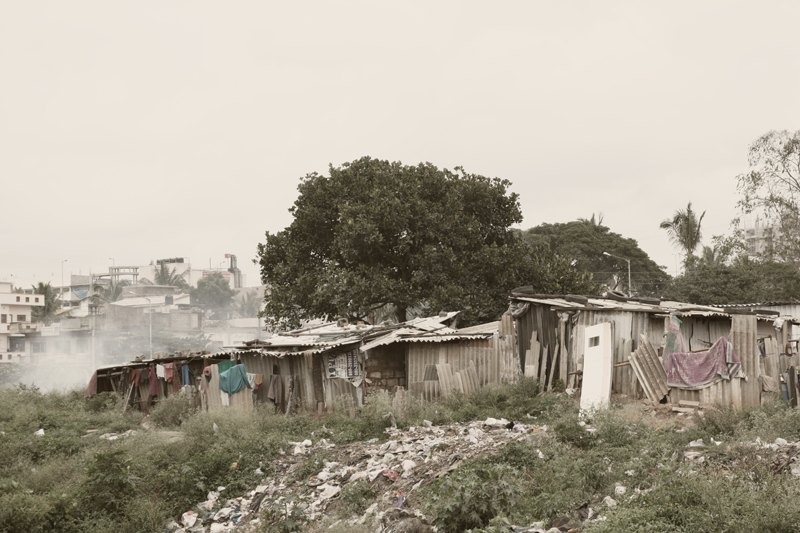Urban Poverty
-
Intended Audience
Slum residents, activists and civil society, policy makers, and academia -
Keywords
Urban poverty, slums, livelihoods, mobility, shelter, social mobility, living wages
How we can capture consequences of policies that reflect in the long-term and understand their impact on individuals’ lives? It is this question we pursue in our research on urban poverty.
In recent times, there has been a shift in conceptualising poverty in an interconnected manner, rather than in a reductive way. If poverty is a multidimensional phenomenon, what then is the nature of the relationship between poverty, income/wages, and well-being? What are the implications of such a conception of poverty, income/wages, and well-being for programmes addressing poverty?
There are four challenges in understanding poverty for policymaking: First, traditional approaches to understanding poverty either focus on the micro-level or on the macro-level, and there is a disjunction between these two approaches. Second, capturing the consequences of policies that reflect in the long-term and understanding their impact on individuals’ lives is not easy to model. Third, the interlinkages between various dimensions of poverty and how it changes with time is again not easy to model. Fourth, the needs and preferences of people are not included in the policymaking process.
In order to address these challenges, at Fields of View, we use a computational modelling approach, which combines both simulations and games. We use agent-based modeling that allows us to model micro-level behaviour and integrate it with macro-level data. In addition, the computing power available today allows us to model interlinkages between different dimensions and examine change over a period of time. As the simulation can be run for an extended period of time, it is possible to examine long-term consequences of policies at both micro-level (individuals’ lives) and macro-levels (level of inequality).
Download BrochureMail us to know more.
Collaborations and Funders
The Poverty Study was partly funded by the Jamshetji Tata Trust and the Next Generation Infrastructure Foundation. The Poverty Study was conducted with the primary help of Mr. Issac Arul Selva, Mr. Issac Amruthraj and Mr. Vinay Sreenivasa. The report on Living Wages was carried out in collaboration with the International Institute of Information Technology, Bangalore, and was funded by the University of Amsterdam.
Publications
Networks of Care: Partnerships for Relief and Support during the COVID-19 Second Wave in Karnataka
COVID-19: Sustaining Momentum and Collaborations, Case study on the Relief Ecosystem in Karnataka
Survey-based socio-economic data from slums in Bangalore, India
Bengaluru's Continuing Inequality
The emergence of slums - A contemporary view on simulation models.
Collaborate with us.Fund this project.

